September 2023 FloridAgriculture eNewsletter
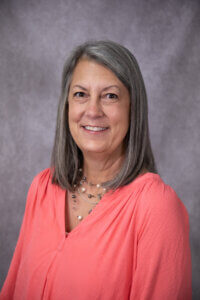 Surrounded by beef cattle and citrus groves, Valerie Ansell grew up running around on her family’s farm in Pasco County. Her father purchased part of the property when he was in high school, and bit by bit, purchased more pieces of land as they became available. Growing up, Ansell and her brother were involved in their local 4-H program, both raising dairy heifers and participating in various leadership projects.
Surrounded by beef cattle and citrus groves, Valerie Ansell grew up running around on her family’s farm in Pasco County. Her father purchased part of the property when he was in high school, and bit by bit, purchased more pieces of land as they became available. Growing up, Ansell and her brother were involved in their local 4-H program, both raising dairy heifers and participating in various leadership projects.
Ansell took a different path through life and felt called to motherhood instead of pursuing a college education out of high school. Her and her family moved to Duval County where she raised her three sons. It was during her time in Jacksonville that she became involved with Florida Farm Bureau.
“My family has always had Farm Bureau insurance and dad even worked as a claims adjuster for a short time,” said Ansell. “My oldest son, Tyler, participated in the Duval County Farm Bureau speech contest and next thing I knew I was volunteering and serving as the women’s chair.”
After living in Duval County for 20 years, Ansell moved to Hernando County in 2016 to be closer to the family farm, and during this time, took a break from volunteer work. Her break only lasted a short time due to her passion for educating others about agriculture. Ansell connected with a young lady employed by the Florida Department of Agriculture and Consumer Services, and together, they created an ag tour for policy makers in the area. The event is held annually and is centered around educating policy makers about agriculture in their district.
In addition to the farm tour, Ansell is proud of her work in Duval County through the Food Check-Out Week, held every February. She spearheaded the secret shopper event at a local grocery store to purchase customers’ groceries. They also work with local food banks to donate buy-one-get-one-free items that are purchased.
“One of our members loads up his mules and wagon with groceries from Publix and he parades it through the parking lot and past a nearby preschool,” said Ansell. “Our field representative, Greg Harden, talks to the preschoolers about agriculture when we stop.”
As her sons grew older and started their own families, Ansell went back to school and completed her interdisciplinary degree from Liberty University, majoring in education, business and psychology.
 Currently, Ansell helps out with the family farm, Jimmy Mc’s, and manages photographer requests for the family sunflower u-pick. She is the proud owner of Frank, a 1964 F-100, that is used in numerous photoshoots throughout the year. She also works part-time at Stable Faith Cowboy Church as the outreach director. Ansell enjoys using this role to connect agriculture programs to her church family and community members.
Currently, Ansell helps out with the family farm, Jimmy Mc’s, and manages photographer requests for the family sunflower u-pick. She is the proud owner of Frank, a 1964 F-100, that is used in numerous photoshoots throughout the year. She also works part-time at Stable Faith Cowboy Church as the outreach director. Ansell enjoys using this role to connect agriculture programs to her church family and community members.
One of Ansell’s favorite parts about Farm Bureau are the relationships she has built throughout her life and continues to build.
“I feel like if I was driving through the state and I broke down, I could phone a Farm Bureau friend that was nearby and they would help me,” said Ansell. “It’s great having not just local friends, but friends across the state and even across the country that I’ve met through American Farm Bureau.”
Ansell continues to foster those relationships as she works toward growing agriculture in her community forward.
“My passion is teaching our youth about agriculture,” said Ansell. “One of the ways I do that is by promoting the Florida Farm Bureau Federation classroom mini-grant program to teachers in my district.”


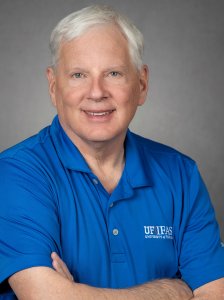 By J. Scott Angle
By J. Scott Angle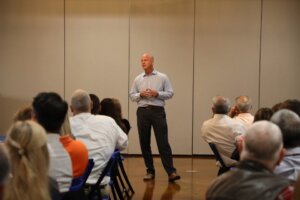 From Jeb’s bear hug to talking fertilizer with Mark to meeting a number of the Farm Bureau’s communiGators—the corps of recent UF grads who help Rachael Smith tell the Florida ag story, I felt at home.
From Jeb’s bear hug to talking fertilizer with Mark to meeting a number of the Farm Bureau’s communiGators—the corps of recent UF grads who help Rachael Smith tell the Florida ag story, I felt at home.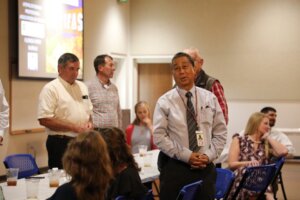 know it will also include the mix of music, comedy and poetry I’ve come to expect from visits with FFBF, that sense of kinship and community.
know it will also include the mix of music, comedy and poetry I’ve come to expect from visits with FFBF, that sense of kinship and community.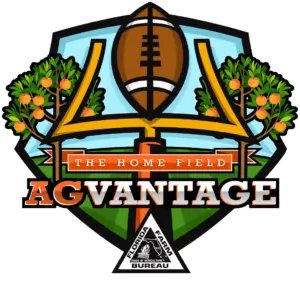 Florida Farm Bureau Federation
Florida Farm Bureau Federation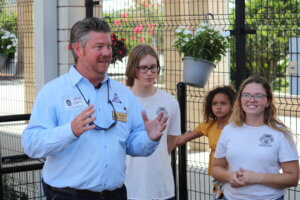 With the generosity of a $5,000 grant from the Orange County Farm Bureau, the Lake Nona High School Agriscience program is now home to a
With the generosity of a $5,000 grant from the Orange County Farm Bureau, the Lake Nona High School Agriscience program is now home to a 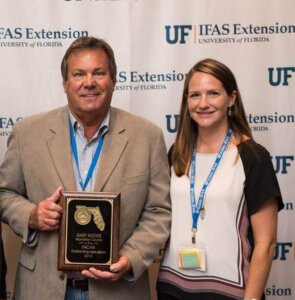 Gary Reeder
Gary Reeder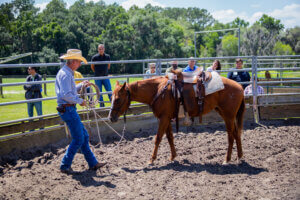
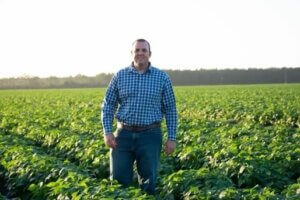 The support of Wells has advanced our work, especially on phosphorus rates on potatoes. Zotarelli, a professor in our
The support of Wells has advanced our work, especially on phosphorus rates on potatoes. Zotarelli, a professor in our 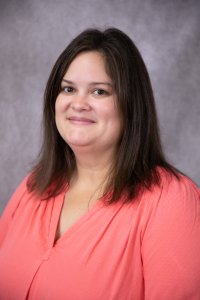 NoraBeth Carpenter
NoraBeth Carpenter